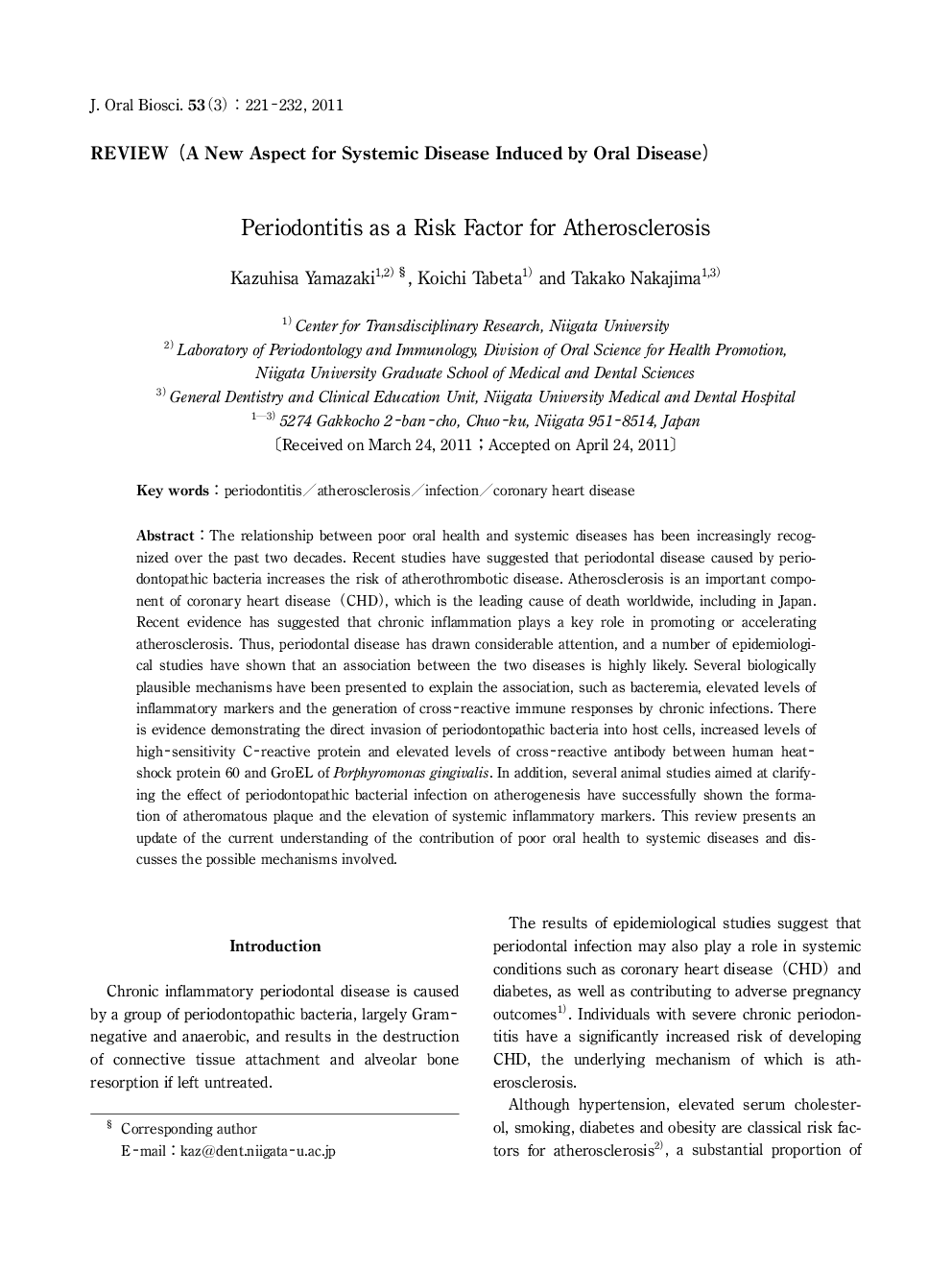| Article ID | Journal | Published Year | Pages | File Type |
|---|---|---|---|---|
| 2776960 | Journal of Oral Biosciences | 2011 | 12 Pages |
The relationship between poor oral health and systemic diseases has been increasingly recognized over the past two decades. Recent studies have suggested that periodontal disease caused by periodontopathic bacteria increases the risk of atherothrombotic disease. Atherosclerosis is an important component of coronary heart disease (CHD), which is the leading cause of death worldwide, including in Japan. Recent evidence has suggested that chronic inflammation plays a key role in promoting or accelerating atherosclerosis. Thus, periodontal disease has drawn considerable attention, and a number of epidemiological studies have shown that an association between the two diseases is highly likely. Several biologically plausible mechanisms have been presented to explain the association, such as bacteremia, elevated levels of inflammatory markers and the generation of cross-reactive immune responses by chronic infections. There is evidence demonstrating the direct invasion of periodontopathic bacteria into host cells, increased levels of high-sensitivity C-reactive protein and elevated levels of cross-reactive antibody between human heatshock protein 60 and GroEL of Porphyromonas gingivalis. In addition, several animal studies aimed at clarifying the effect of periodontopathic bacterial infection on atherogenesis have successfully shown the formation of atheromatous plaque and the elevation of systemic inflammatory markers. This review presents an update of the current understanding of the contribution of poor oral health to systemic diseases and discusses the possible mechanisms involved.
